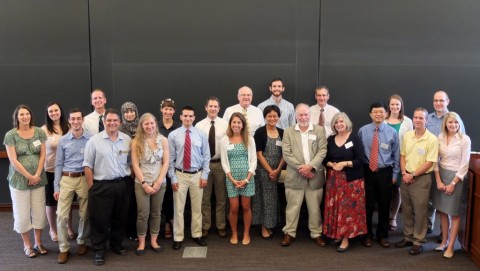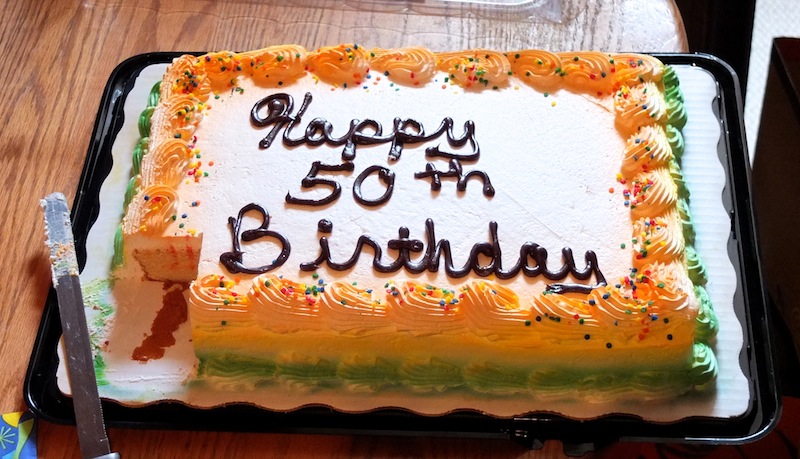Genomic Medicine and the Plain Populations of North America
Lancaster, Pa. – July 17 – 18, 2013- In collaboration with Franklin & Marshall College and the Howard Hughes Medical Institute, the Clinic for Special Children hosted a two-day conference on Genomic Medicine and the Plain Populations of North America. In its 24 year history, the CSC has proven that preventative, genomic medicine decisively improves outcomes while saving local Amish and Mennonite communities millions of dollars in medical costs (Strauss, et al. AJPH, 2012). There are now clinics in Ohio, Indiana, and Wisconsin, and Canada, all working to expand the CSC’s model to other communities in need of specialized, preventative, genomic medicine. The conference was intended to bring together representatives from all clinics as well as local medical professionals and friends. The conference also served as an opportunity for continued medical education credits (CME).
“This conference was an important opportunity for all of the Clinic’s collaborators and friends to share knowledge, insights, and methods, with the overall goal of improving our ability to provide better care for the children and families we serve,” says Dr. Kevin Strauss, Medical Director at the Clinic for Special Children.
THANK YOU to all of our participants and presenters. We especially thank the staff and faculty of Franklin & Marshall College, particularly Karlla Brigatti, for their work in coordinating this great event!
Lecture Materials by Presenter
D. Holmes Morton, MD
Clinic Director, Clinic for Special Children
Approach to Care for Patients with Metabolic Disorders
Cardiomyopathy in Patients with the Amish & Mennonite Variant of Propionic Acidemia
Erik Puffenberger, PhD
Laboratory Director, Clinic for Special Children
Building a Core Laboratory Service
Kevin Strauss, MD
Medical Director, Clinic for Special Children
Genes and Development
One Community’s Effort to Control Genetic Disease
Adam Heaps
Laboratory Scientist, Clinic for Special Children
The Challenges and Opportunities of Collaboration
Edwin Naylor, PhD, MPH
Medical University of South Carolina & Parabase Genomics, Inc.
Newborn Screening: Yesterday, Today, and Tomorrow
Olivia Wenger, MD
New Leaf Clinic
A Little Mennonite Girl’s Guide to Starting a Clinic for Special Children
Robert O’Reilly, MD
Division Chief, Pediatric Otolaryngology, Nemours AI DuPont Hospital for Children
Patient Centered Research: The Audiology Experience
Aravinda Chakravarti, PhD
Professor of Molecular Biology and Genetics, Johns Hopkins University
Next Generation Sequencing using Exome Sequencing
Chris Roberson, JD, MPH
Director of Compliance and Community Programs
Identifying Needs, Implementing Services in the Indiana Plain Community
Elizabeth Rice, PhD, Carey Sentman, Mandi Tembo
Franklin & Marshall College
Congenital Adrenal Hyperplasia – A Parents’ Handbook
Zach Adams, Emily Dlugi, Varun Rajagopalan
Franklin & Marshall College
Public Health Genomics and Translational Research
A. Micheil Innes, MD FRCPC FCCMG
Associate Professor, Medical Genetics – University of Calgary
Clinical Genetics and the Hutterite Brethren: What Have We Learned in the New Millenium?
Donald B. Kraybill
Elizabethtown College – Senior Fellow, Young Center for Anabaptist & Pietist Studies
North American Anabapists Demographic Overview
Christine M. Seroogy, MD
Associate Professor, Immunology/Immunopathology Focus Group Leader, Department of Pediatrics
University of Wisconsin Madison
Initiative in Wisconsin: Update
Heng Wang, MD
DDC Clinic Center for Special Needs Children – Middlefield, Ohio
The Story of the DDC
Joshua Wesalo
Franklin & Marshall College
Highlight: GM3 Synthase Deficiency
Alan R. Shuldiner, MD
Director, Program in Personalized and Genomic Medicine – University of Maryland
Amish Research Clinic
Overview of the Amish Research Clinic
Robert N. Jinks, PhD
Associate Professor of Biology, Franklin & Marshall College
Bridging the Gap Between Research and Education Using Rare Disease Research
Victoria Siu, MD
University of Western Ontario
Newborn and Carrier Screening in Southwestern Ontario FORGE Canada – A History of Collaboration




